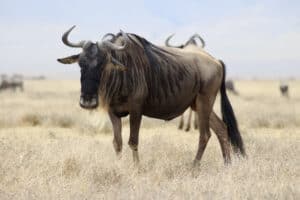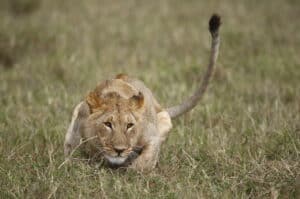Continue reading for our analysis...
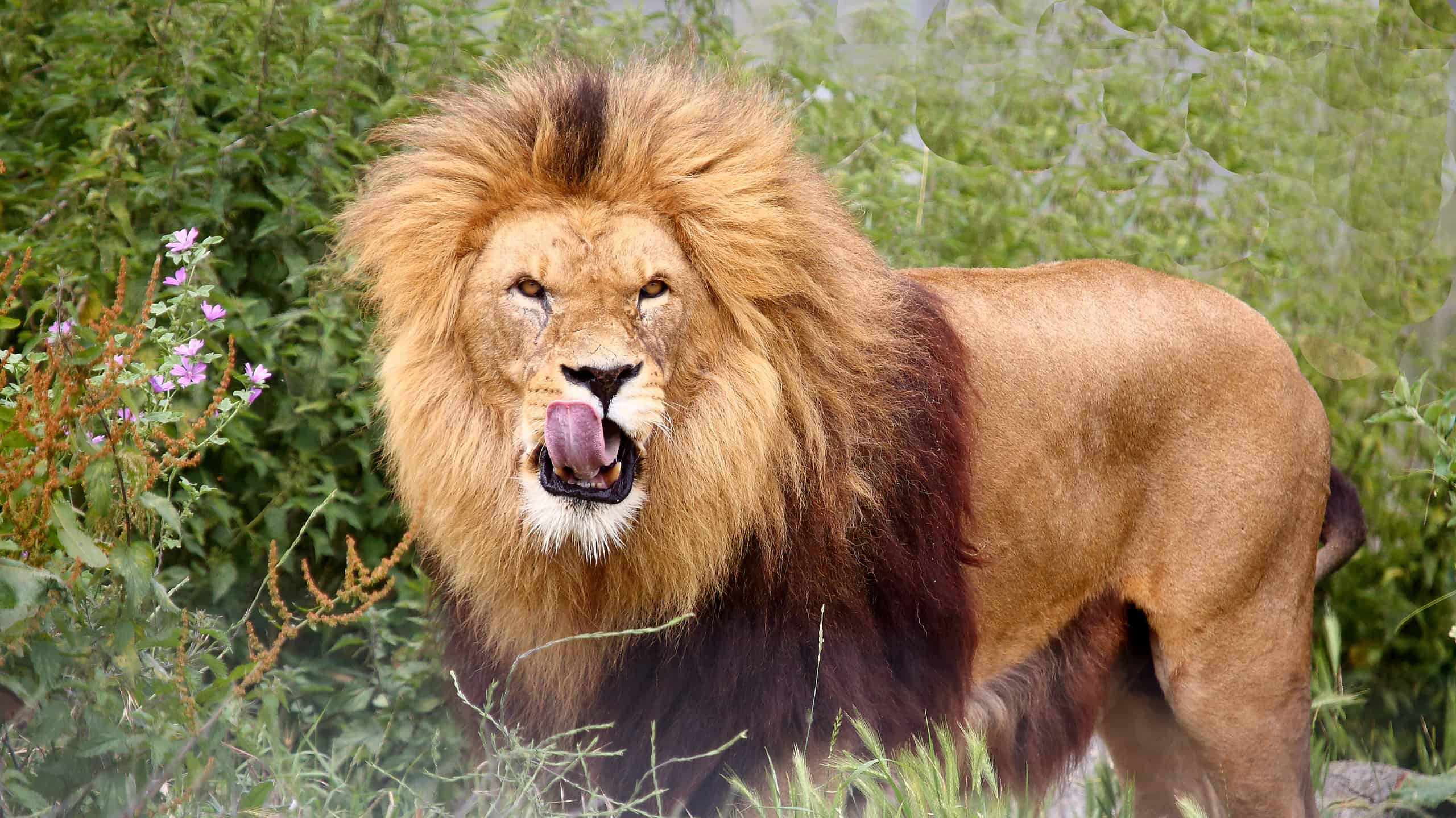
A pack of wild dogs has secured themselves a couple of kills near a watering hole. The kill is being shared between scores of dogs. Out of shot, another visitor is arriving at the buffet! Suddenly, every single one of the wild dogs scatters and a large, male lion strolls into the scene. He now has his choice of food and proves why he is at the top of the food chain in this habitat.
Is This Normal Behavior for Lions?
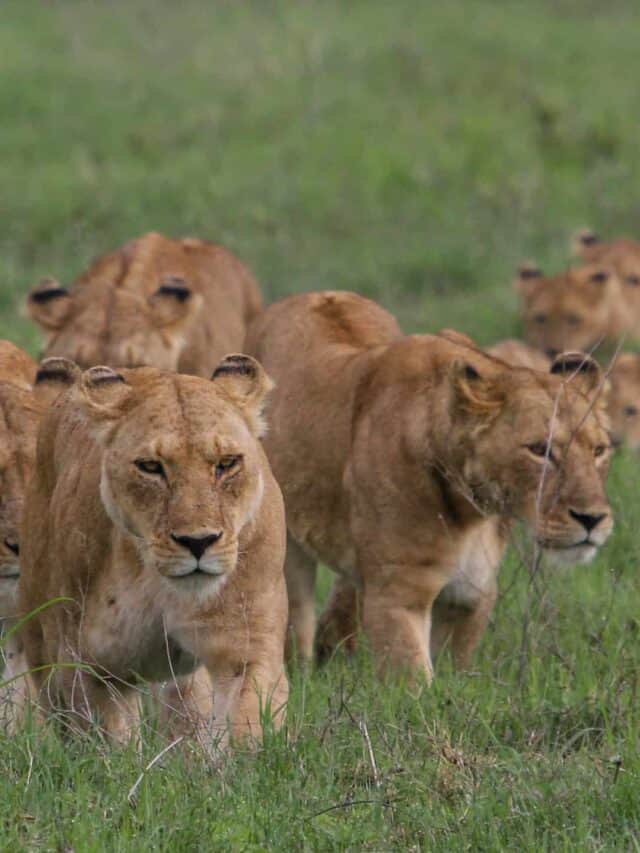
Lions may acquire their food from scavenging, although most hunt for their meals.
©Adalbert Dragon/Shutterstock.com
Lions (Panthera leo) are perfectly capable of catching their own prey but that does not mean that they always bother. From an energy-conservation point of view, it is a lot more efficient to pinch food that another animal has gone to the effort of catching. The lions get a meal without having to use up precious calories chasing it around first!
Some groups of lions acquire most of their food from hunting and only scavenge a little whilst others rely a lot more on scavenging. In open-plan habitats, it can make up over half of their nutritional intake. Male lions are more likely to scavenge than females. As well as scavenging from African wild dogs as we see here, lions pinch food from cheetahs, leopards, and even other lions!
So, how do lions know where to find a fresh kill? They watch for vultures descending around a kill site and follow them. They also listen for the sound of squabbling hyenas or African wild dogs at a kill site.
Do Lions Lose Kills to Other Animals?
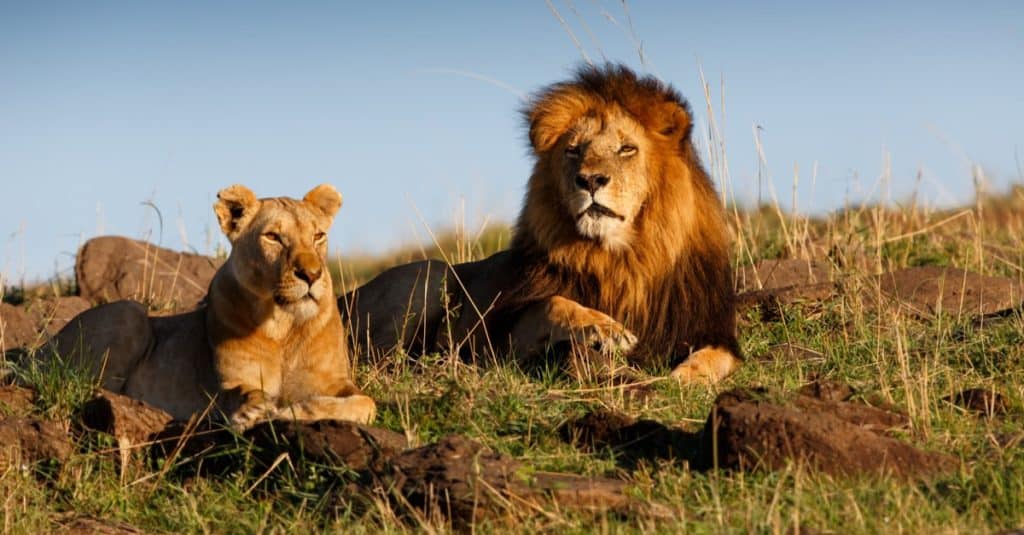
A lioness is less likely to lose her kill if a male lion is present.
©Maggy Meyer/Shutterstock.com
Yes, sometimes lions themselves can lose kills but only under certain circumstances. It is usually hyenas that steal a kill from a lion but they usually wait until the lions have abandoned the carcass before they move in. Female lions can lose up to a fifth of their kills to packs of spotted hyenas and a further 17 percent to other lions! However, if a male lion is present this is much less likely to happen. You will often see males guarding a large carcass that cannot be consumed in one sitting. At other times, they will gorge on it and then leave the remains for other scavengers to feed on.
Thank you for reading! Have some feedback for us? Contact the AZ Animals editorial team.




